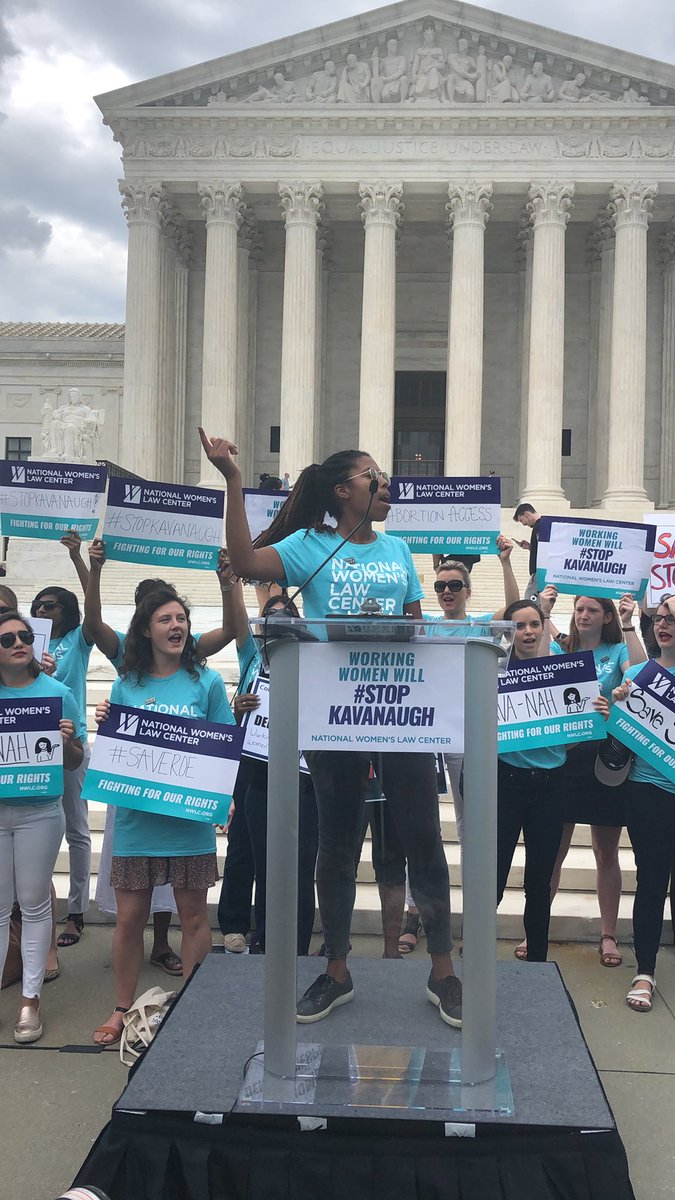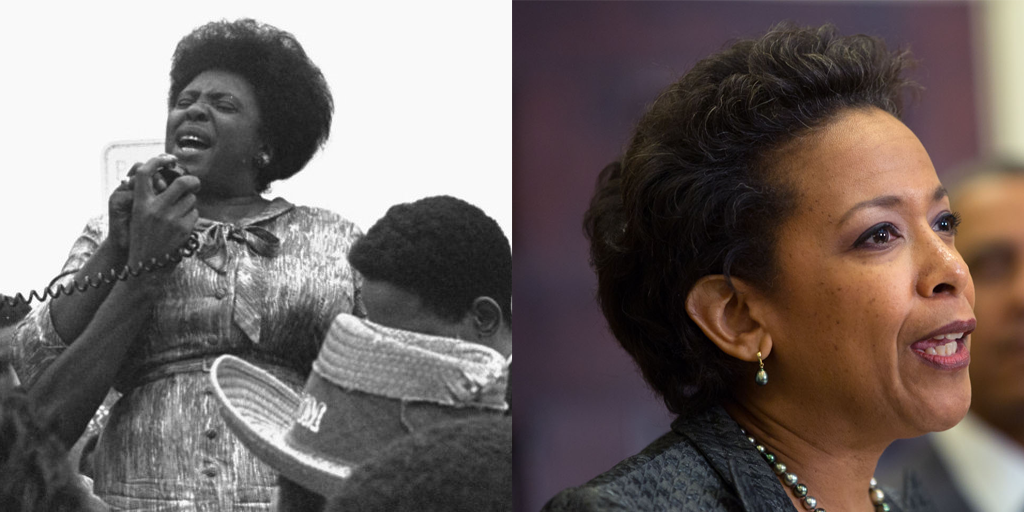Abortion rights, women of color, and LGBTQI+ people are under attack. Pledge to join us in fighting for gender justice.
Our Fight for the Judiciary Is More Important Than Ever

 Unfortunately, Brett Kavanaugh is now the newest Supreme Court justice, but our fight for a fair and impartial judiciary is not over. Only a small fraction of cases are heard by the Supreme Court. This means that the lower courts – the federal district and appellate courts – wield significant power to decide the legal rights and principles that are critically important to women, including the right to privacy, equal protection, anti-discrimination, access to health care, and health and safety protection. The nomination and confirmation of lower court judges continues at an alarmingly rapid pace. We can still make a difference, and we must keep fighting back.
Unfortunately, Brett Kavanaugh is now the newest Supreme Court justice, but our fight for a fair and impartial judiciary is not over. Only a small fraction of cases are heard by the Supreme Court. This means that the lower courts – the federal district and appellate courts – wield significant power to decide the legal rights and principles that are critically important to women, including the right to privacy, equal protection, anti-discrimination, access to health care, and health and safety protection. The nomination and confirmation of lower court judges continues at an alarmingly rapid pace. We can still make a difference, and we must keep fighting back.
Like the Supreme Court, these lower court judges must be approved with the advice and consent of the Senate. But the Republican majority is steamrolling nominees through, with zero regard for the normal process. This week, in an unprecedented move, Senate Judiciary Committee Chairman Chuck Grassley scheduled two nomination hearings while the Senate is in recess before mid-term elections, during which Senators return home and campaign. By scheduling these hearings that include controversial nominees, despite the objections of members of the Senate Judiciary Committee, Senator Grassley is breaking from the custom of postponing hearings until after the recess and ignoring the fact that several members are unable to return for these hearings. The Senate Judiciary Committee is obligated to thoroughly vet nominees for lifetime appointments to ensure we have a fair and impartial judiciary. Holding hearings during a recess makes a mockery of this process by preventing all members from questioning nominees about critical issues and potential biases.
And like the Supreme Court, we are seeing Trump nominate – and the Senate majority approve – nominees who are hostile to our most basic rights and freedoms, including nominees who have a record of taking positions against reproductive rights, LGBTQ rights, and civil rights. For example, the recent confirmation package included Mark Norris who has a record as a state legislator of creating barriers to women’s access to abortion and other reproductive health care, including establishing legal rights for fertilized eggs and imposing medically unnecessary requirements on abortion providers – the type of restrictions struck down by the U.S. Supreme Court in Whole Woman’s Health v. Hellerstedt.
We cannot allow Senators to be complacent and rubber stamp judicial nominee confirmation deals. We must continue to resist this aggressive agenda of packing the courts with judges ready to roll back our fundamental freedoms.





